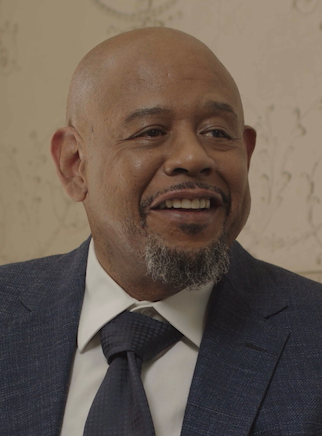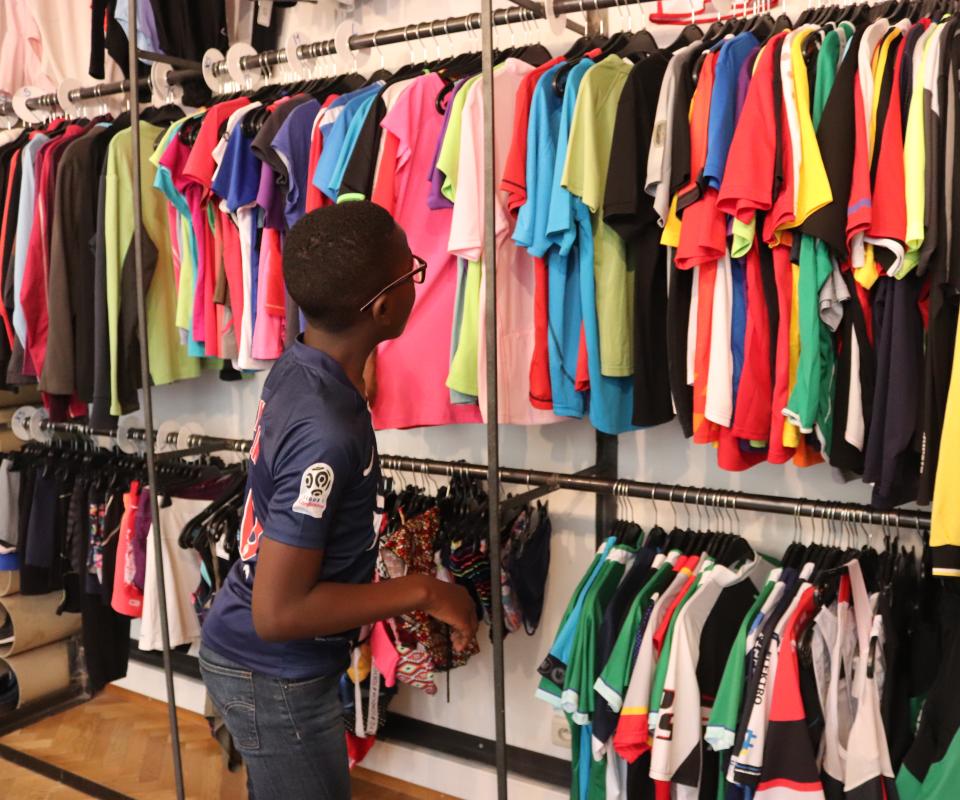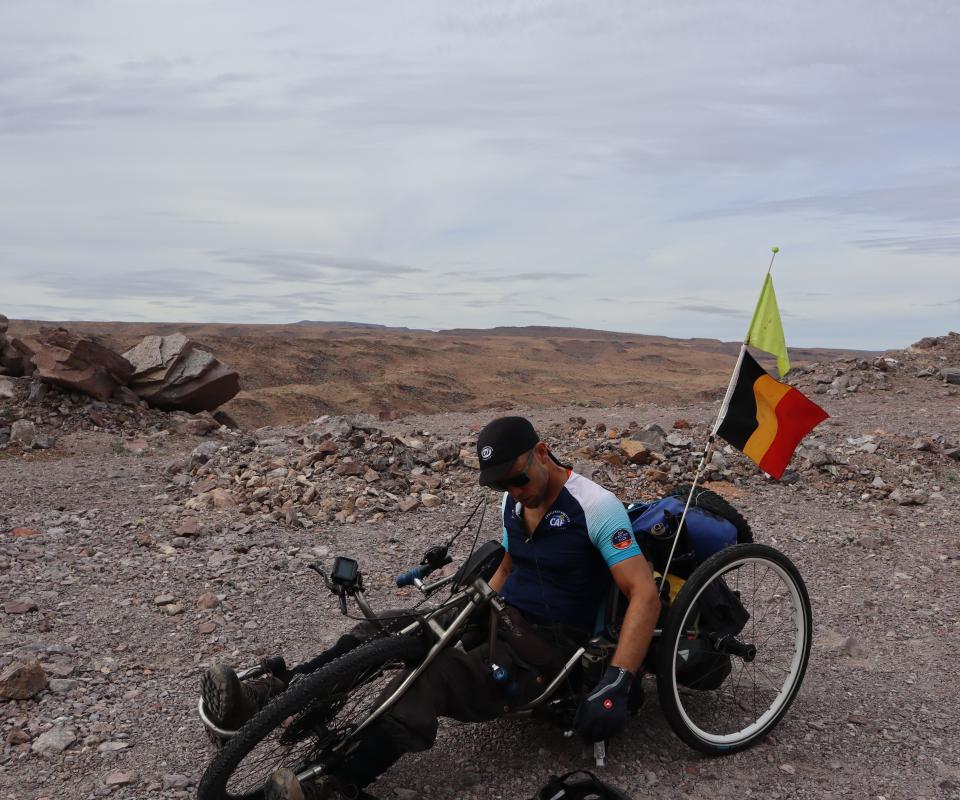
The Choice for Philanthropy: Forest Whitaker at Be Philanthropy 2023
In a video address to Be Philanthropy 2023, at which the King Baudouin Foundation brought together more than 1,100 leading figures in Belgian and European philanthropy on 27 April, actor Forest Whitaker explained his vision of a world where every person can be a philanthropist and help build a better society.
Starting from an early desire to help others, from the troubled neighbourhoods of Los Angeles where he grew up to the former child soldiers he met in Uganda while filming his Oscar-winning role in The Last King of Scotland, Whitaker spoke of the excitement he has found over the past decade since launching the Whitaker Peace and Development Initiative to help young people not only to help themselves but to empower them to build peace and prosperity within their own communities.
Forest Whitaker’s remarks, in conversation with KBF’s Head of Philanthropy Ludwig Forrest, are reproduced below.
Ludwig Forrest:
I would like to say how much you tried to be with us in Brussels today, but that recent professional commitments changed these plans.
I also know that you know very well and appreciate some distinguished guests here today. Would you like to say a few words?
Forest Whitaker:
I'd like to take this opportunity to thank Her Majesty the Queen for supporting my participation in this discussion … I was excited because I met her several years ago. We shared a lot of similar interests regarding dealing with people who are from disadvantaged backgrounds, to be dealing with trauma in healthcare, and a number of different things in development. So, it's great to be able to be here today.
Ludwig Forrest:
We are here to reflect on philanthropy, to enable philanthropy, and to inspire. What brought you to philanthropy? Why did you engage?
Forest Whitaker:
I think that I was involved in philanthropy before I really was acknowledging that I was. I mean, I was just trying to work with my fellow man and trying to uplift people as best as I could, take it on the model that what I see in somebody else reflects myself, then I need to do something to help. And so, my work started to bring me there. And that work led to, I guess, the turn to philanthropy from my point of view. That's what I've been doing for the last ten years, specifically in my own organisation.
And the years before that, I didn't have any understanding of what that meant.
Ludwig Forrest:
But you have many involvements in philanthropy. How do you choose?
You are UNESCO's special envoy for peace and rehabilitation. You just mentioned also your role in the UN advocacy group for SDGs.
Forest Whitaker:
The UN's building peace, equality, and a healthy planet, and that's like pretty much what we're working for. And then the same is like building peace in the hearts and minds of men and women from the motto of UNESCO.
Both of those things fit into my agenda in a way where we're all working together for the same purpose, being able to free the planet of conflict in the best ways we can and allow every individual to have the ability to have peace, health, happiness, and prosperity in their lives.
Ludwig Forrest:
You mentioned, of course, obviously, the 'Whitaker Peace and Development Initiative.' We will have the pleasure to welcome Caroline Descombris in a few minutes on stage, and she will explain the missions and the actions of WPDI.
From your heart, why did you choose to work on peace and sustainable development?
Forest Whitaker:
I mean, I think that growing up as a young kid in America, as an African American, and looking at some of the conflicts and different things in the neighbourhood, started to spark an interest in me being able to work in that area.
And I think the first thing was to start working with gang members when I was younger,
and then domestic violence. And then, when I came over to Uganda, I got a chance to meet some of the child soldiers there. I could see the same look in their eyes that I could see in the eyes of the kids I grew up with. So, I decided to make that sort of a life purpose.
And fortunately, I had great people working with me, like Caroline, and an amazing staff to actualise it and make it grow, and it's grown over the last ten years. We probably started about 500 businesses. And we have dealt with like a million and a half people in different ways. And it's been exciting for me to help in benefiting the growth.
Ludwig Forrest:
Youth empowerment and the promotion of gender equality are also very important to you.
Forest Whitaker:
Yeah, it's like one of the goals of our organisation itself, fortunately. We have programmes in eight countries. Over half of them are women. Particularly in South Africa, we graduated about 750 young and older women to work in entrepreneurship, because that's one of our goals.
So, it's an agenda that we continue to work towards, and we're glad to be involved with everybody who is on the same agenda.
Ludwig Forrest:
You have a very successful career in cinema. How does that influence your philanthropic work or vice versa? How does your philanthropic work influence your successful career?
Forest Whitaker:
I think there's a creative aspect to being able to develop the work that's necessary, to give people the tools to be able to succeed. And I think initially, I just had an idea of having four pillars: conflict resolution, life skills, ICT, and social entrepreneurship. And so all this was the beginning of what we wanted to do. In that way it was a creative endeavour based on things that I had learned and things that I read. And I think continuing to have that, to be on the ground, understand how to mediate as our youth is mediating in different areas, sometimes mediating conflicts between tens of thousands of people, this youth must use their creativity to know and feel their empathy, to know exactly what to do to make those things work and make changes happen. So, I think that's a part of it. And so, as myself, as an artist, I can't help but be influenced by the energies and the things that I've heard and known. They've become a part of me. That's a great gift that I am receiving. Sometimes it's painful, sometimes it's beautiful, but I learn from it.
Ludwig Forrest:
Among the many things you achieved with your organisation and with all your engagements, what are you the proudest of? Philanthropically speaking, of course.
Forest Whitaker:
I guess I'm most proud of the beneficiaries. We have youths building businesses, from sushi trucks in South Africa to farms in South Sudan. These kids impressed me. I remember Simon, who was one of our first trainees, he'd held my hand and walked me up to his electric store. And then he showed me next to that was a school where he was training the other people to do the same thing he had been doing. We find that happening with our beauty shops that have been made. It's exciting to see them be able to mediate conflicts, go into communities and change their temperament and help them move toward peace.
They've been doing a lot of things, and, you know, you can't help but be excited about that.
Ludwig Forrest:
I see a philanthropic smile on your face. How can philanthropy make a difference, according to you?
Forest Whitaker:
Every person can be able to do something to help, small or big. I think Desmond Tutu kind of said it when he said: "Do all your little bits of good wherever you are. All your little bits of good will overwhelm the world." And I think that people need to know that and take on this movement, the movement to be able to find peace on the planet and prosperity for all. And I think it's exciting for me to know that I'm continuing to walk in and I will continue to go forward until it's changed.
Ludwig Forrest:
Mr. Whitaker, on behalf of the King Baudouin Foundation, thank you so much for this inspiring conversation, and thank you again for your availability. Thank you.
Forest Whitaker:
Thank you, this will let me be a part of it.
Ludwig Forrest:
Absolutely.
Other stories
Inspiring engagement!

Soft sound improves sleep quality in dementia
"On the one hand, poor sleep leads to additional problems for patients, which also affects their caregivers, often resulting in institutionalisation. On the other hand, we wonder whether poor-quality deep sleep could worsen the disease or perhaps even contribute to its development."

Sportswitch: THE recycling center for sports clothing
Inclusive transition
“We want to raise awareness about the sustainability of sports clothing.”

“Alaska - Mexico by handcycle? Michiel did it!”
"I did it, of course, for myself, because I want to keep traveling. But I also want to inspire other people with disabilities. Your world doesn’t have to become small after an accident."